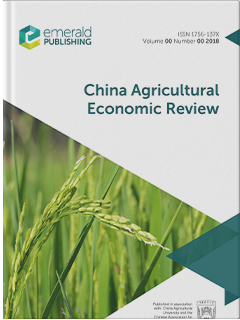利用基因数据预测消费者对酒精产品的选择
IF 4.6
2区 经济学
Q1 AGRICULTURAL ECONOMICS & POLICY
引用次数: 0
摘要
目的食物的选择会深刻影响一个人的饮食、营养和健康状况。以酒精饮料为例,作者结合传统的社会人口学数据,评估了基因数据在预测消费者食物选择方面的潜力。设计/方法/方法进行离散选择实验,以引出来自中国七个省份的484名参与者的潜在偏好。通过将参与者的三种类型的数据(来自选择实验的数据、社会人口统计信息和个人基因分型数据)联系起来,作者使用了四个基于机器学习的分类(MLC)模型来评估遗传信息在预测个人食物选择方面的表现。作者发现,XGBoost算法结合了遗传和社会人口统计数据,实现了最高的预测准确率(77.36%),显著优于仅使用社会人口统计数据的人(排列检验p值=0.033)。几种行为特征(如抑郁和身高)和与苦味感知相关的遗传变异(如TAS2R5 rs2227264和TAS2R38 rs713598)的多基因得分提供了与标准社会人口统计因素(如性别、年龄和收入)相当的贡献.原创性/价值这项研究是经济学文献中第一个实证证明遗传因素在预测消费者行为中的重要作用的研究之一。这些发现为随机效用理论领域提供了新的见解,并保证了进一步的消费者行为研究,整合基因数据,以促进精准营养和精准营销的发展。本文章由计算机程序翻译,如有差异,请以英文原文为准。
Leveraging genetic data for predicting consumer choices of alcoholic products
PurposeFood choices profoundly affect one's dietary, nutritional and health outcomes. Using alcoholic beverages as a case study, the authors assess the potential of genetic data in predicting consumers' food choices combined with conventional socio-demographic data.Design/methodology/approachA discrete choice experiment was conducted to elicit the underlying preferences of 484 participants from seven provinces in China. By linking three types of data (—data from the choice experiment, socio-demographic information and individual genotyping data) of the participants, the authors employed four machine learning-based classification (MLC) models to assess the performance of genetic information in predicting individuals' food choices.FindingsThe authors found that the XGBoost algorithm incorporating both genetic and socio-demographic data achieves the highest prediction accuracy (77.36%), significantly outperforming those using only socio-demographic data (permutation test p-value = 0.033). Polygenic scores of several behavioral traits (e.g. depression and height) and genetic variants associated with bitter taste perceptions (e.g. TAS2R5 rs2227264 and TAS2R38 rs713598) offer contributions comparable to that of standard socio-demographic factors (e.g. gender, age and income).Originality/valueThis study is among the first in the economic literature to empirically demonstrate genetic factors' important role in predicting consumer behavior. The findings contribute fresh insights to the realm of random utility theory and warrant further consumer behavior studies integrating genetic data to facilitate developments in precision nutrition and precision marketing.
求助全文
通过发布文献求助,成功后即可免费获取论文全文。
去求助
来源期刊

China Agricultural Economic Review
AGRICULTURAL ECONOMICS & POLICY-
CiteScore
9.80
自引率
5.90%
发文量
41
审稿时长
>12 weeks
期刊介绍:
Published in association with China Agricultural University and the Chinese Association for Agricultural Economics, China Agricultural Economic Review publishes academic writings by international scholars, and particularly encourages empirical work that can be replicated and extended by others; and research articles that employ econometric and statistical hypothesis testing, optimization and simulation models. The journal aims to publish research which can be applied to China’s agricultural and rural policy-making process, the development of the agricultural economics discipline and to developing countries hoping to learn from China’s agricultural and rural development.
 求助内容:
求助内容: 应助结果提醒方式:
应助结果提醒方式:


